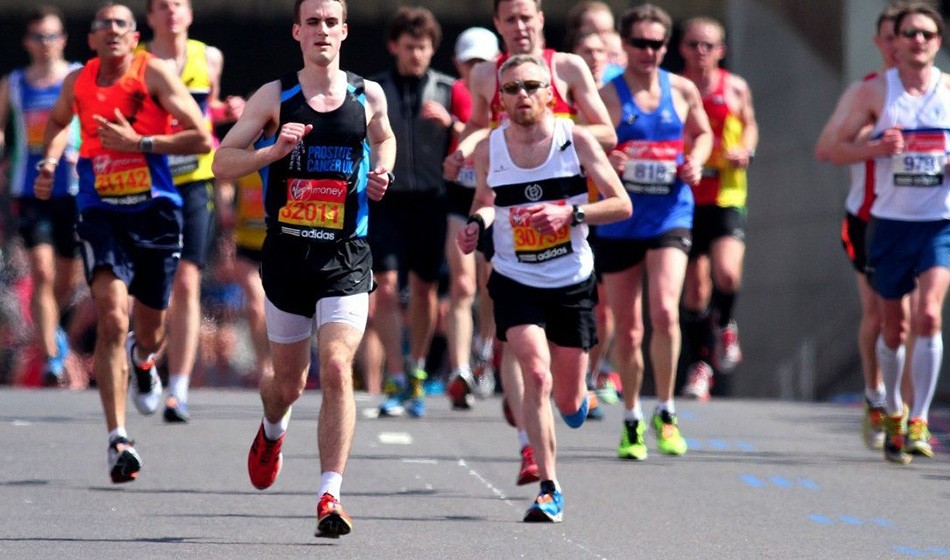The marathon: It’s the big event that lots of runners attempt to complete at a certain point in their lives, with just a portion of these really going through with doing this.
The decision to train for and race at a marathon should never be taken lightly. This event will change your life for the months to come and will place a whole new degree of stress on the body–stress which you have probably never encountered before. In this article, we’ll share how to prepare for a marathon.
Table of Contents
How to prepare for a marathon – Things to Consider When Registering for a Marathon
1. Setting a Goal
According to DICK’S Sporting Goods Associate Autumn Greba, the first thing that you should think about when selecting a marathon is your objective. Greba, who’s a collegiate coach and former Division I runner, says that aim could be as straightforward as finishing the marathon or as focused as completing under a specific moment.
Hitting that goal is not the end-all, be-all. Setting a target may also help shape your training for the marathon. Greba says when you eventually reach the start line, concentrate on having a good time.

2. Time
It can have a good chunk of your schedule to prepare for the race. In most training plans, the maximum run before a marathon is around 20 miles. In addition to this, most marathon training programs demand cross-training. Some runners cross-train with exercises such as biking, biking, swimming, strength training, and walking. These workouts can have a significant chunk of your time.
3. Training for a marathon
Coaching is one of the most significant factors to take into consideration when running a marathon for the first time. It can be a very long and strenuous activity, so it is important to prepare yourself and devise a plan.
One of the best ways to become a better, stronger, and quicker runner is to cross-train. Cycling, rowing, swimming, whatever gets your heart rate up is great for constructing cardio fitness, minus the effect running puts on your joints. Already play a game? Keep this up, it all counts as aerobic! Mixing up things keeps your body guessing, and keeps your training interesting.

4. Your Nutrition Habits
As mentioned, your nutrition needs are going to go up dramatically, so you need to get ready to deal with this. If your body is not getting what it needs, functionality will falter and shortly, you won’t be finishing those runs as planned.
If you don’t know much about nutrition, it might pay to find out more about it until you start training. Keep these fast points in mind as you make your choice to run a marathon. If you’re well prepared for it, the race may be among the most amazing experiences you will ever have.
5. Financial
Not many things in life are free. There’s typically an entry fee when you register for a marathon. That may range anywhere from around $20 to get a small community race to approximately $300 to get a big city marathon. Beyond this, there are different expenses and costs you need to think about.
In the event the race is out of town, you have to plan for travel and remain. There’s also the cost of your running equipment. It is possible to mention this Pro Tips checklist on marathon clothes and essentials. Some runners may even spend less on a coach or jogging group to help them train.
Running a marathon for the first time can be daunting, but with all these things in your mind, you’re already a step ahead.

FAQs
1. Are you injury-free?
There’s no doubt running is good for your body and beneficial to your overall wellness. Nevertheless, running stresses your joints — especially your hips, knees, and ankles. Even though a previous injury history in your lower extremities doesn’t signify a half-marathon is impossible, it should be factored into your own training.
If you presently have pain or sore joints throughout training, deciding to run even farther can put you more in danger. We recommend consulting a sports medicine doctor or a physical therapist to discuss your injury history before choosing to register.
2. Are you motivated?
As soon as you start running longer distances, then you are going to learn exactly how large a mental challenge can be. If you find the 10K distance boring or hard to get through, the half-marathon will probably be tough to manage — particularly during training when you may be logging long miles.

Having the proper inspiration before deciding to step up could be a good way of determining if you are ready. Whether the shorter distances have been easier, you have a charity you’re running for or you simply want the challenge of pushing yourself to a new limitation, determine why you need to run a half-marathon and keep this in mind for those times during your practice when your motivation to conduct starts to wane.
Conclusion
For your first race, so keeping it simple can be extremely valuable. Finding a race near home with comparable terrain makes training easier, and reduces expenses and stress.
Clearly defining your race goals and objectives for your first marathon will help you refine your search. In this informative article, you have understood things to prepare for a marathon. Hope you love it.




